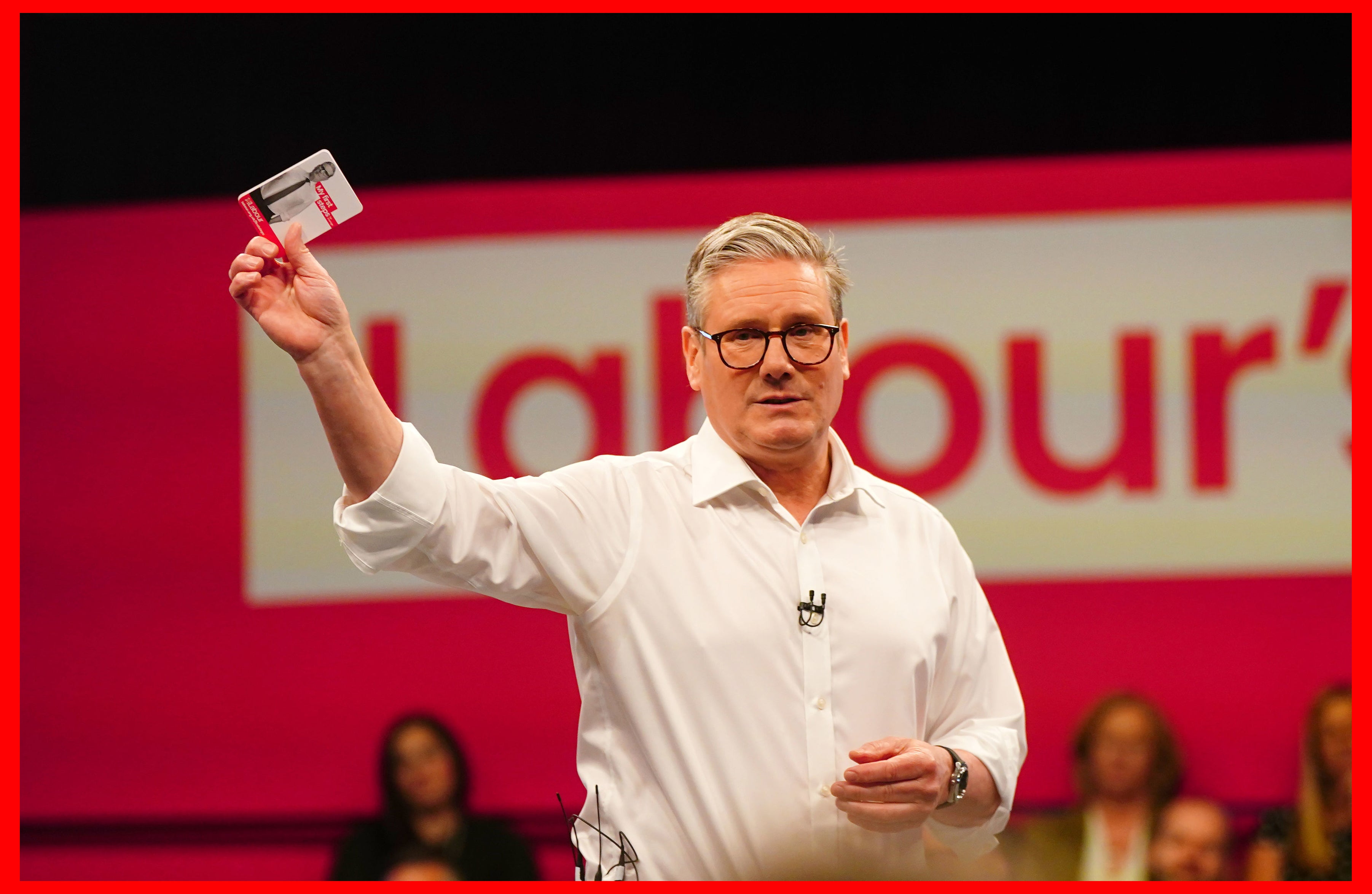Starmer’s ‘six steps’ are not Labour’s final offer – he has several more tricks up his sleeve
There is good reason why Labour fired its election starting gun with a cautious, limited ‘doorstep’ pitch to would-be voters – there are plenty of goodies being held back until nearer the election, says Andrew Grice


A tale of two speeches, by Rishi Sunak and Keir Starmer, kicked off what party strategists call the “long campaign” for the general election. It will be very long – probably lasting six months.
Although their target audience was the voters, in the short term the two leaders will probably be more successful in cheering up their own troops. Senior Conservative MPs welcomed Sunak’s focus on defence and national security and his first attempt to talk about what five more years of Tory government would mean. The Tories have belatedly realised they must defend their record in the past 14 years, however embarrassing the Johnson and Truss chapters. If they don’t, it is easier for Labour to make the election a referendum on that record.
One minister told me Sunak’s speech might just mark “a turning point” when the 20-point opinion poll gap starts to close, arguing the PM can finally point to genuine progress in meeting his five pledges to answer the charge of presiding over “broken Britain”.
I suspect this is wildly optimistic, and Starmer’s speech reminded us why when he said the Tories had “beaten the hope out of people”. They do not feel that “broken Britain” has been fixed. Starmer’s pitch at his slick launch event in Essex offered gradual change, ending the Tories’ chaos without inflicting even more disruption. Hence his claim that “stability is change”. His other goal was to tackle voter scepticism – and, in some cases, cynicism – about whether Labour would really be any different.
Labour MPs have been crying out for a “retail offer” to sell on the doorsteps because Starmer’s five missions are too vague; his six “first steps” will help. But only two – on teachers and NHS appointments – have numbers attached, and they should be made more specific, like Tony Blair’s 1997 pledge card. Starmer should be firmer about when voters will notice a difference, rather than resort to platitudes like “as quickly as possible”, “straight away” and “pretty swiftly”.
As Peter Mandelson, one of New Labour’s architects, told the UCL Policy Lab’s Britain Renewed conference on Wednesday: “In government, you only know what’s being achieved if it is measured. That’s the difference between words and action, taking a decision and being accountable for it. So monitoring the output and outcomes of mission, and publishing them, is indispensable.”
However, I suspect Labour’s six steps are not its final offer, and that some goodies are being held back until nearer the election, such as on childcare.
Starmer’s caution has a purpose. As he put it, he will not make promises he cannot deliver. As well as inheriting a deficit in the public finances, the Tories will bequeath a trust deficit in politics generally, ensuring only a short honeymoon for Labour. Starmer has seen the dangers of overpromising with Sunak’s undeliverable pledge to “stop the boats”. So he plays safe with the structural change of “a new border security command”, and can at least argue Labour is not dodging the issue.
Starmer was less convincing on his biggest weakness. He argued that “only a few” of the pledges he made while running for the Labour leadership had been dropped. A quick glance at the list suggests several have gone, including tax rises for the top 5 per cent of earners; abolition of university tuition fees and universal credit; common ownership of mail, energy and water and free movement with the EU. This matters because the Tories can claim Starmer says one thing before an election and does another afterwards.
It’s another reason why the Labour leader makes limited promises. So is Jeremy Corbyn’s long list of policies at the 2019 election which, while individually popular, were judged by voters as too good to be true.
Starmer’s limited prospectus will not stop the Tories making up their own shopping list of what Labour would do. On Friday, Jeremy Hunt said a cautious assessment of Labour’s plans by Treasury officials had identified a £38bn black hole which would have to be filled by tax rises.
Rachel Reeves, the shadow chancellor, has made no proposals to raise income tax, but nor has she adopted Blair’s 1997 pledge of “no rise in income tax rates”. Yet.
Hunt tried to puncture the “myth” there is little difference between the two main parties on economic policy – an unintended compliment to Reeves for achieving that impression. The chancellor argued that what happens to the tax burden after the election is “the biggest divide in British politics today”. But voters may have other priorities; polls suggest more people want any spare resources spent on public services rather than tax cuts.
However, Hunt’s warning will strike a chord with wavering 2019 Tory voters. I think his intervention earnt the Tories a late equaliser, so they sneaked a 2-2 draw over the week. Their problem is they were already 0-2 down, given Labour’s poll lead. Crucially, Starmer’s clever pitch will enable him to retain that advantage.






Join our commenting forum
Join thought-provoking conversations, follow other Independent readers and see their replies
Comments